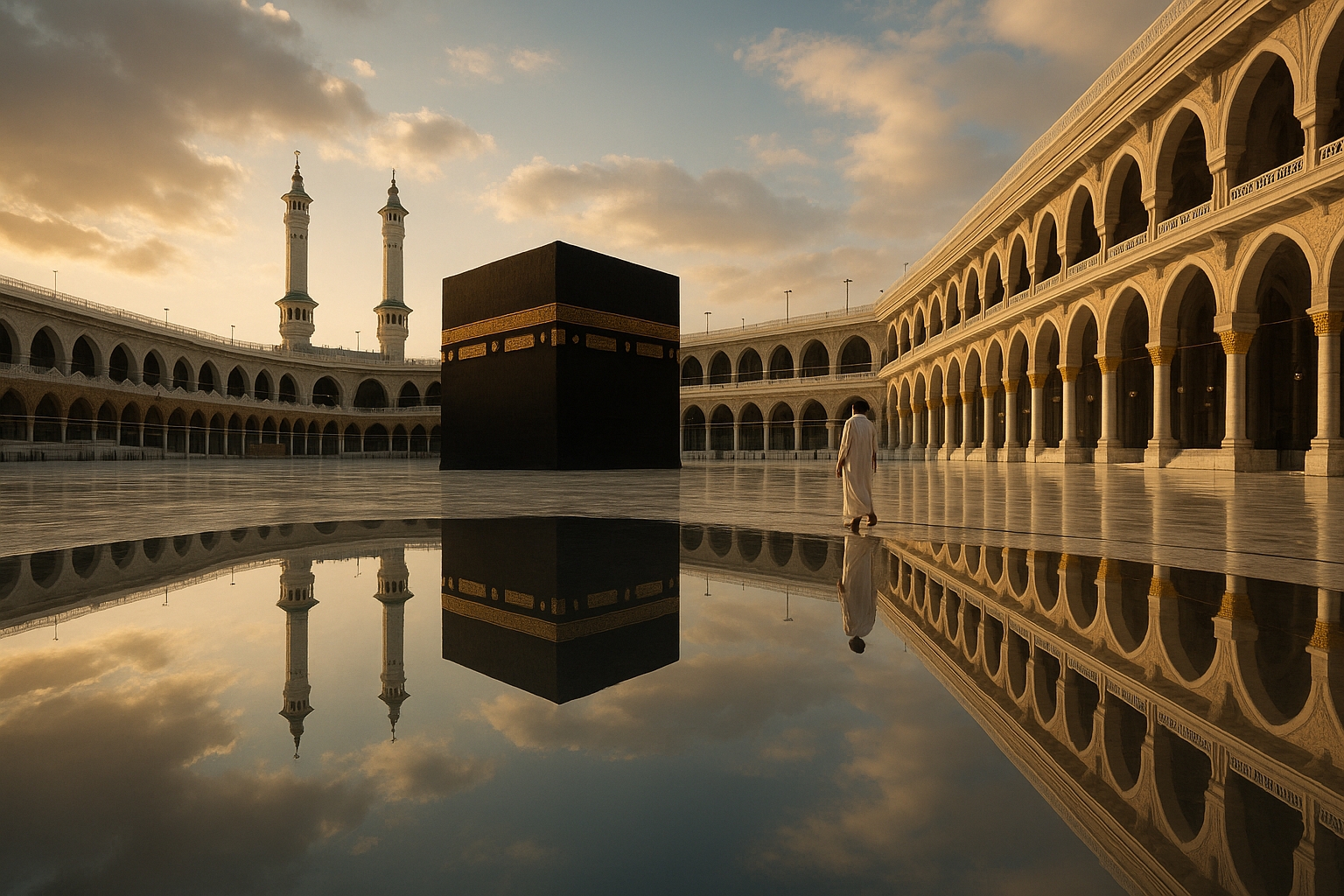



The eroneous impression that after the liberation of Makkah, all of its people suddenly became good Muslims needs to be corrected. The Prophet (ﷺ) referred to them as ‘tulaqa’ (amnestied prisoners), not Sahaba (companions). Muslims should take note.
Muslims worldwide have been dismayed to learn that an Israeli Jewish reporter managed to sneak into Makkah and even visit Arafat, reporting for Channel 13 in the zionist entity. How did he get there when non-Muslims are not allowed in Makkah? The Saudis have a lot to answer for.
Hajj has been suspended for most but a handful of Muslims this year. Those that were unable to perform Hajj have not missed much since the Bani Saud have turned this divinely prescribed obligation into an empty ritual devoid of all meaning
The Ansarallah fighter’s missile strike at a Saudi air base near Jeddah has sent the Saudi regime into frenzied panic. The Bani Saud have unleashed their paid agents worldwide accusing the Houthis (the label used for Ansarallah fighters) of firing the missile at the Kaaba with the intention of destroying Islam’s holiest site. Nothing could be further from the truth but as the saying goes, a lie is half way around the world before truth has had a chance to tie its shoelaces.
2What you are about to read in this article may be regarded by some as controversial. These words are put together during the season of the Hajj, which is a good time to try to counter the tons of misinformation we have about the Saudi regime, which has done so much to diminish this annual expression of the independence and power of the Ummah to little more than a ritual void of warmth, enthusiasm, and spirit.
In view of the present situation in Iraq, where bloodshed is widespread, and where aggression on assets and property, perpetrated under the guise of Islam, is daily occurrence, and in response to the invitation of the Secretary-General of the Organization of the Islamic Conference (OIC) and under the umbrella of the OIC International Islamic Fiqh Academy (IIFA), We the scholars of Iraq, from both the Sunnis and the Shiites, having met in Makkah Al-Mukarramah in Ramadan of the Lunar Hijra year of 1427H (2006) and deliberated on the situation in Iraq and the disastrous plight of the Iraqi people, issue and proclaim the following Declaration
The Holy City was host to a very different gathering of Muslims from all over the Ummah, the “Kings, Heads of State and Government, and Emirs of the Member States” of the Organization of the Islamic Conference (OIC), the club of Muslim countries established after the burning of the al-Aqsa Mosque in Jerusalem in 1969
Last month, the Organization of the Islamic Conference held an Extraordinary Summit in Makkah to discuss urgent issues facing the Ummah. Unlikely though it may seem, ZAFAR BANGASH, the director of the Institute of Contemporary Islamic Thought, hopes that some good may come of it...
The study of the Seerah of the Prophet (saw) to learn lessons relevant to the contemporary Islamic movement is a major project of the Institute of Contemporary Islamic Thought. Here, IMAM MUHAMMAD AL-'ASI, of Washington DC, discusses the centrality of Makkah in the strategy of the Prophet’s Seerah, and its implications for Muslims today.
Last month, Crescent International published the paper presented by Imam Muhammad al-Asi at the ICIT Seerah conference in Toronto on May 10. SHAMA QURESHI, a reader in the UK, is less than entirely convinced by his argument...




